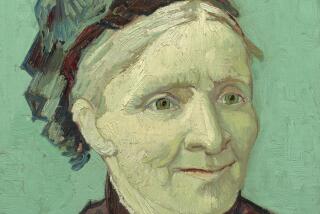Death Valley acid trips and cocktails with Einstein — The SoCal lives of exiled minds
Over the decades, Southern California been welcoming to many people: the sickly sun seekers and the weirdly healthy; down-to-earth atheists and the space-voyaging theosophists; the truly innovative and the unrepentantly nutty. Then there were those who were fleeing both major political upheavals (pogroms, Nazis, revolutions and repressive notions of gender and identity) and not-so-major general discomforts (bad weather, Old World morality). That is probably why so many radical European artists and philosophers eventually spent large parts of their lives in the Southland, from the great early 20th century film directors such as F. W. Murnau, Fritz Lang and Ernst Lubitsch to the spiritually adventurous (and, let’s face it, sort of crackpot) Aldous Huxley.
Three recent books explore the somewhat unexpected Southern California connections of European thinkers Michel Foucault, Bertolt Brecht and Salka Viertel.
“Foucault in California” by Simeon Wade
Heyday; 151 pp. $25
Over the decades, many intellectuals came to Southern California from somewhere else; and often they came to escape the systems of politics, logic and art they left behind. This seems especially true of French philosopher and social theorist Michel Foucault, the subject of this odd memoir.
Foucault was one of the most influential philosophers of the 20 century, producing numerous “disciplinary histories” documenting how systems of knowledge (sexual, linguistic, medical) were more effective at controlling populations than at disseminating knowledge. (He was also an early proponent of shaved heads and cool Kraftwerkian demeanor.) “Foucault in California” is written by an academic who brought Foucault out to speak to his students at Claremont Graduate School in the mid 1970s, a place the author described as “our little avant-garde outpost in one of the most reactionary regions of California.”
Over the course of a long weekend, Simeon Wade and his partner, Michael Stoneman (both of whom died before this memoir was discovered and published), escorted Foucault around Death Valley, dropped acid with him staring out at Zabriskie Point, and entertained him through a couple of boozy student parties — to all of which Foucault responded joyfully.
In many ways, this weird book seems like one of those alternate history stories you might read in a science fiction magazine, as in “What if the Nazis won WWII?” or “What if Superman joined the Fantastic Four?” But one of the charms of California is that many of these crazy “what if” scenarios (“What if Michel Foucault dropped acid in Death Valley and then hung out with graduate students?”) are actual events that grow wildly on the palm trees; and Foucault, who spent his life investigating the way systems of knowledge invest who we think we are, called his brief California adventure “the greatest experience of my life.” Sometimes, the best way to investigate systems of knowledge is to get as far away from them as possible; and Foucault may have, very briefly, felt he did just that during his brief “trip” to Death Valley. Foucault went on to become a visiting professor at UC Berkeley in 1980, and later lectured at various universities around America, including UCLA. In 1984, he died in Paris of complications from AIDS. He was one of France’s first high-profile deaths because of the disease.
Although this excellent and surprising book starts off looking like a “joke” about a secret event in the life of Foucault, it turns into an affectionate memoir about the very human man who clearly enjoyed being free from his often inhuman-sounding prose style.
“The Kindness of Strangers” by Salka Viertel
NYRB Classics; 343 pp., $17.95
Wherever they came from, and whatever they were looking to find or escape when they got here, many of Southern California’s most notable intellectual imports passed through what was affectionately known as the same “port of entry” — the home of Austrian actress-turned socialite Salka Viertel at 165 Mabery Road in Santa Monica.
In a recently reissued memoir by New York Review of Books classics, “The Kindness of Strangers,” Viertel begins by recounting her years as a young actress and mother in Berlin and Vienna — and gathers steam at the point when she buys her Santa Monica home in 1933, where she lived for the next several decades (when she wasn’t subletting it to survive her lean years as a scriptwriter). After her errant husband, writer-director Berthold Viertel (the inspiration for Dr. Bergmann in Christopher Isherwood’s “Prater Violet”), returned to Europe, Salka stayed on to raise her children. She wrote some good scripts for producer Irving Thalberg, went on to make a precarious living with a series of second-string producers and developed her chief commercial reputation for being able to work with the difficult-to-typecast Garbo, with whom she shared a life-long friendship. Viertel’s greatest talent, however, was for assembling talented people at mealtimes, and the lists of her dinner guests read like some postmodern collage of radically juxtaposed personalities — including Olympic gold medal winner and Tarzan-portrayer Johnny Weissmuller, Freudian psychologist Alfred Adler, Nobel Laureate Thomas Mann, Albert Einstein, and that unfairly neglected British master of short-short stories, John Collier — (who apparently introduced Hollywood to the “4 o’clock break for tea, which turned out to be a great success”).

It’s hard to imagine so many interesting people assembled around the same table without Viertel there to welcome them — and despite her achievements as an actress and writer, her greatest talent may have been her rare ability to appreciate the talents of others; it’s certainly an ability which makes this memoir so much fun to read. Whether she’s describing the Hollywood Anti-Nazi League (“what all these people do is sit around their swimming pools, drinking highballs and talking about movies, while the wives complain about their Filipino butlers”) or expressing her admiration for Wiemar-era German poet and playwright Bertolt Brecht (“He was a slight man, polite and considerate, who never uttered a banality”) she always manages to illuminate the innate human qualities of the artists and people she admired — even those who are often misrepresented as superhuman.
“The Collected Poems of Bertolt Brecht” Translated and edited by Tom Kuhn and David Constantine
1286 pp. Liveright. $49.95
The prolifically committed Brecht produced some of his best work living in exile in 1940s Santa Monica. Certainly Brecht’s brilliant lifetime of production seems superhuman — and the beautifully produced, massive, thousand-dense-pages-plus new edition of his “Collected Poems” might foster that illusion just by reason of its heft and gravity. But then all you need to do is read two or three lines from anywhere in it to find that Brecht’s concerns were never superhuman at all, but always deeply focused on the all-too-human people and events around him — such as this, from the “Hollywood Elegies,” written during the years he was enjoying meals with Viertel and her friends:
“The angels of Los Angeles / Are tired out from smiling.”
Or this:
“Every morning, to earn my bread / I go to the market where lies are traded/ In hope / I take my place among the sellers.”
Like many artists who came to Hollywood, Brecht solicited work from the film industry he despised, and some might say that he often bit the hand that fed him. But for Brecht, biting the hand that fed him was, as for any artist, sort of the point. “The Collected Poems” book is a massive, unwieldy and endlessly inventive tome that never grows tired of smiling.
Bradfield is a writer whose novels include “The History of Luminous Motion” and “Dazzle Resplendent: Adventures of a Misanthropic Dog.”
More to Read
Sign up for our Book Club newsletter
Get the latest news, events and more from the Los Angeles Times Book Club, and help us get L.A. reading and talking.
You may occasionally receive promotional content from the Los Angeles Times.







